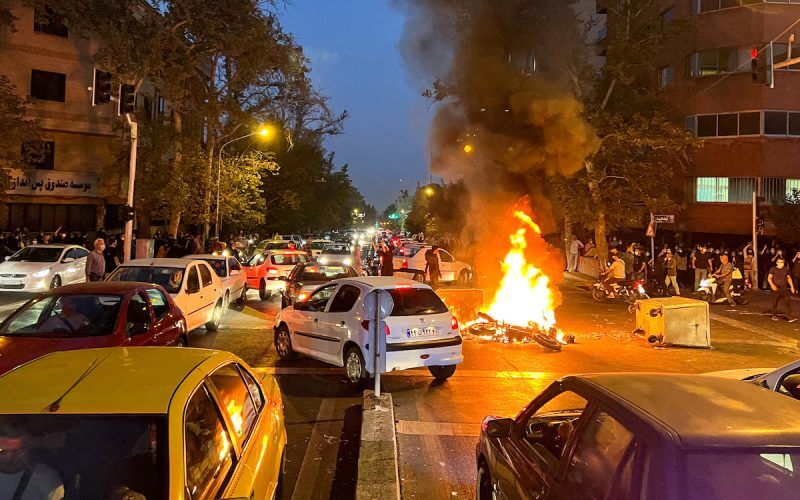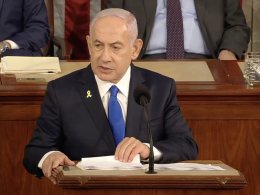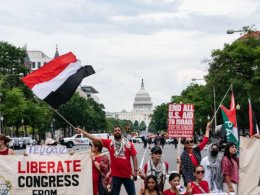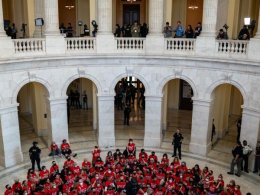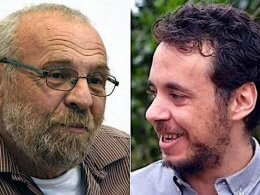By All Arab News Staff | November 14, 2022
The Islamic Republic of Iran has killed at least 326 civilians, including 43 children and 25 women, in the recent months’ anti-regime protests, according to the Norway-based Iran Human Rights NGO.
The IHRNGO report said the fatality numbers constitute a “minimum” and that civilians have been killed in at least 22 of Iran’s provinces, including Tehran. Roughly a third of the dead are linked to the Sistan and Baluchestan districts, home to large ethnic – non-Persian – minorities, such as Baluchi and Kurds.
Iran Human Rights director Mahmood Amiry-Moghaddam has urged the nations to hold the ayatollah regime accountable for its lethal violence against Iran’s civilians.
“Establishing an international investigation and accountability mechanism by the U.N. will both facilitate the process of holding the perpetrators accountable in the future and increase the cost of the continuous repression by the Islamic Republic,” Amiry-Moghaddam said.
The regime has also handed down her first death sentence in connection with the protests, according to media reports. The charges are for setting fire to a government building and being “an enemy of God and corruption on earth.”
Meanwhile, there is no end in sight for the nationwide protests in Iran. Thousands of Iranians in the volatile southeast of the country took to the streets on Friday to protest against “Bloody Friday,” a reference to the violent unrest on Sept. 30 that began after the death of 22-year-old Kurdish woman Mahsa Amini.
Amini was arrested by Iran’s notorious “morality police” for allegedly failing to wear her hijab, or headscarf, according to the country’s hijab law. She died while in police custody.
Videos on social media, reportedly from the town of Saravan in the Sistan-Baluchestan region, featured protesters in Baluchi ethnic clothes calling for the death of Iranian “supreme leader” Ali Khamenei.
Molavi Abdolhamid, Iran’s most prominent Sunni cleric and critic of the Shiite establishment, blasted the regime’s military response.
“Where did the military forces get trained to shoot people? Today it has become clear that people were killed unjustly,” Abdolhamid said during his Friday sermon. “Authorities must condemn this crime, and those who ordered (the events of) Bloody Friday and its perpetrators must be brought to trial.”
Thousands of people around the world, from Los Angeles to Berlin, have protested against the Iran regime’s brutality in solidarity with the oppressed people of Iran.
Golnaz Esfandiari, a senior correspondent for the media company Radio Free Europe/Radio Liberty, said women in Iran and around the globe identify strongly with Amini.
“When Iranian woman see what happened to Mahsa, they think it could have happened to them,” she said, “because you hardly find an Iranian woman who has not been either warned or detained or harassed by the morality police.”
“We all know we’ve all had this experience,” the journalist said. “I was talking to several women in Iran, and they told me – look, even if she wasn’t tortured, but she probably died from fear; she had a heart attack from fear – because they know how scary this is.”
The United Nations estimated at the beginning of November that the regime has arrested at least 14,000 protesters.
“Over the past six weeks, thousands of men, women and children – by some accounts, over 14,000 persons – have been arrested, which includes human rights defenders, students, lawyers, journalists and civil society activists,” said Javaid Rehman, senior U.N. official and special rapporteur on the human rights situation in Iran.
Many of those arrested are intellectuals and academics who, as groups, tend to oppose the ayatollah regime. It is likely the number arrested has increased further.






